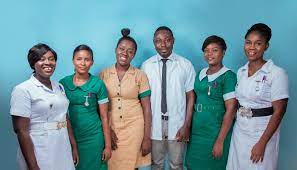By Muniratu Akweley Issah
Accra, Oct. 20, GNA – Training for Health Service providers is ongoing in over 6,000 Community-Based Health Planning and Services (CHPS) compounds, across the country with almost 1,400 health centres to undertake clinical breast examination and diagnosis.
Dr. Afua Commeh, Programme Manager, Non Communicable Diseases, (NCD), Ghana Health Service (GHS) said five regions including; Savanna, Bono East, Ashanti, Eastern and Central regions had already gone through the training to detect breast cancer cases as early as possible.
Dr. Commeh told the Ghana news Agency (GNA) in an interview that it was important to ensure that health workers were trained to build their capacity and enable them detect diseases early, particularly breast cancer and be able to do referrals when necessary.
She recognized the role of health workers as key partners in providing primary health care service within the districts and communities.
“So, it is important that we are able to train all our health providers, especially, at the primary healthcare centres. With Clinical breast examination, what is needed is the skills and once they pick up the lumps, it is suspected, and they can refer to the specialist, who would also conduct additional tests to confirm the disease,” she added.
According to the Programme Manager, Breast cancer continued to be the number one female cancer in Ghana, an important health issue that continued to kill women, hence the need to make funds available to prevent these diseases. Saying “we do not need to sit and wait till the disease gets to the worst stage,” Dr Commeh said.
Available statistics indicates that Ghana, recorded about 4,482 new cases of breast cancer and out of that, 2,055 deaths were recorded and almost 50 per cent of the new cases were lost.
Dr. Commeh noted that the menace was due to late reporting as most breast cancer deaths could have been avoided if cases were diagnosed early, adding that over 70 per cent of the cases reported were already in their advanced stages.
She said “from our facility level data, and the various cancer registries, we realized that almost three quarters of our cases come in at stage three and four, which were quiet late. Once they come in late it means the cancers would have spread already and that makes it challenging to manage.”
“Because people report late, the results are not too good, that is how come you can loose many women. Where as in other places they are picking up the cases very early, so almost everybody is surviving so if the disease has not spread and you pick up, it can totally be treated and the woman will be fine,” she added.
She noted that beyond the training, continuous education among the larger population was necessary, as most of the victims had no idea about what to do when detected.
“We keep saying that once you have anything in your body that you feel is abnormal, report as early as possible so that it can be treated completely for you, investment starts from prevention, continuous health education is key, so that people will know what to look out for.”

“Even for the school children, some of these lumps start quite early and at that stage, it is not yet a cancer, but if the person does not report for it to be monitored, the cancer will grow as she gets older, she added.
GNA